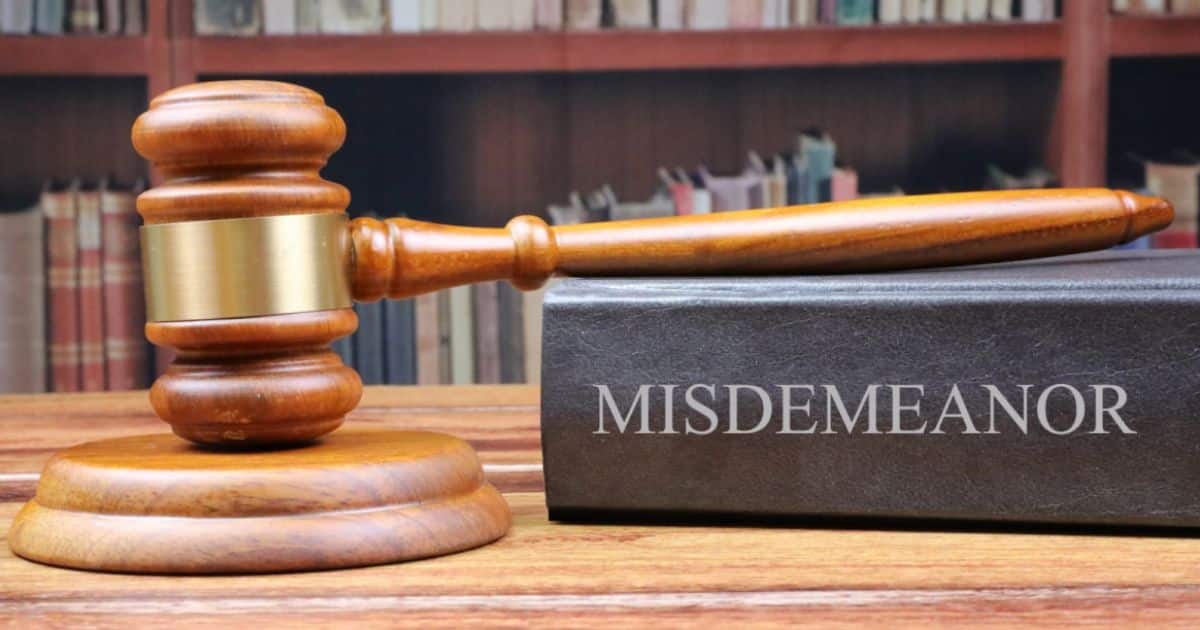Misdemeanors, while considered less severe than felonies, can still result in significant legal penalties. These offenses, ranging from petty theft to simple assault, often result in fines, probation, or short jail terms.
Understanding the potential penalties for misdemeanors is crucial for anyone navigating the justice system, as even minor convictions can have serious implications.

Classification of Misdemeanors
Many jurisdictions categorize misdemeanors into classes, ranging from the most severe (Class A/1) to the least severe (Class C/3). This system guides sentencing, with Class A potentially resulting in up to a year in jail, while Class C might only incur a fine.
Fines as a Common Penalty
Fines are a standard penalty for misdemeanor charges, with amounts varying depending on the offense and circumstances. First-time offenders may face lower fines than repeat offenders. Some jurisdictions add conditions to the sentence in order to grant victims restitution. Given the intricacy and potential repercussions, it is recommended that you consult a misdemeanor defense attorney to fight your charges.
Jail Time as a Punitive Measure
For more severe misdemeanor offenses, such as domestic assault or DUI, jail sentences can range from a few days up to one year in a county or city jail. Shorter jail terms may also be used for repeat offenders, even if the crime does not warrant incarceration. Some jurisdictions permit alternatives to traditional jail time, such as electronic monitoring, which allows the offender to serve their sentence at home, subject to restrictions in movement.
Probation as an Alternative
Probation is frequently used as an alternative or addition to jail time for misdemeanor convictions. During a probation period, the offender must comply with specific conditions set by the court, including regular meetings with a probation officer, employment requirements, community service, or drug testing. Violating these conditions can lead to more severe consequences, potentially including jail time. Probation aims to balance accountability with rehabilitation, allowing individuals to reintegrate into society under monitored conditions.
Community Service Requirements
Community service is another standard penalty for misdemeanors, particularly for nonviolent offenses. This penalty requires the offender to complete a set number of hours working in the community, often with local non-profit organizations or government agencies. Community service aims to provide a constructive punishment by benefiting society while instilling a sense of responsibility in the offender. Depending on the offense, it is typically imposed alongside or in place of other penalties, such as probation or fines.
Collateral Consequences and Lasting Effects
Beyond the immediate penalties, a misdemeanor conviction can lead to lasting consequences that may affect various aspects of an individual’s life. These collateral consequences can include difficulty securing employment, professional licensing restrictions, and challenges in finding housing. Some jurisdictions allow for expungement, where a person can request the removal of a misdemeanor from their criminal record after a specified period, provided they have demonstrated good behavior.
Conclusion
Misdemeanors are generally less severe than felonies, but they come with various penalties that match the degree of the offense.
Fines, jail time, probation, and community service are common penalties, with courts aiming to balance deterrence, punishment, and rehabilitation.
Recognizing the possible repercussions of misdemeanor offenses, individuals can appreciate the importance of complying with the law and avoiding actions that could lead to significant legal repercussions.
